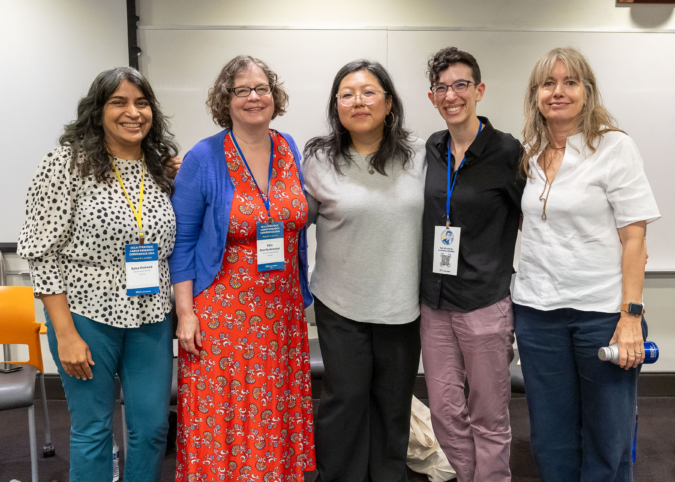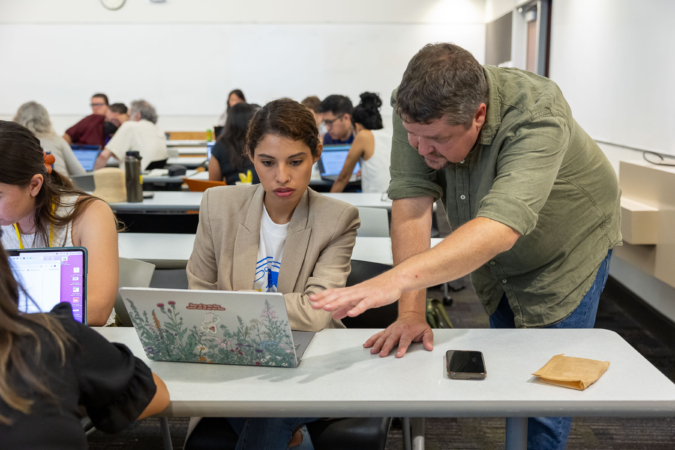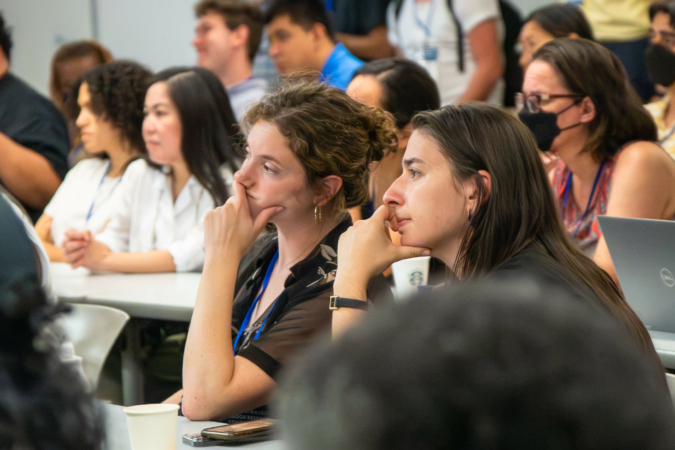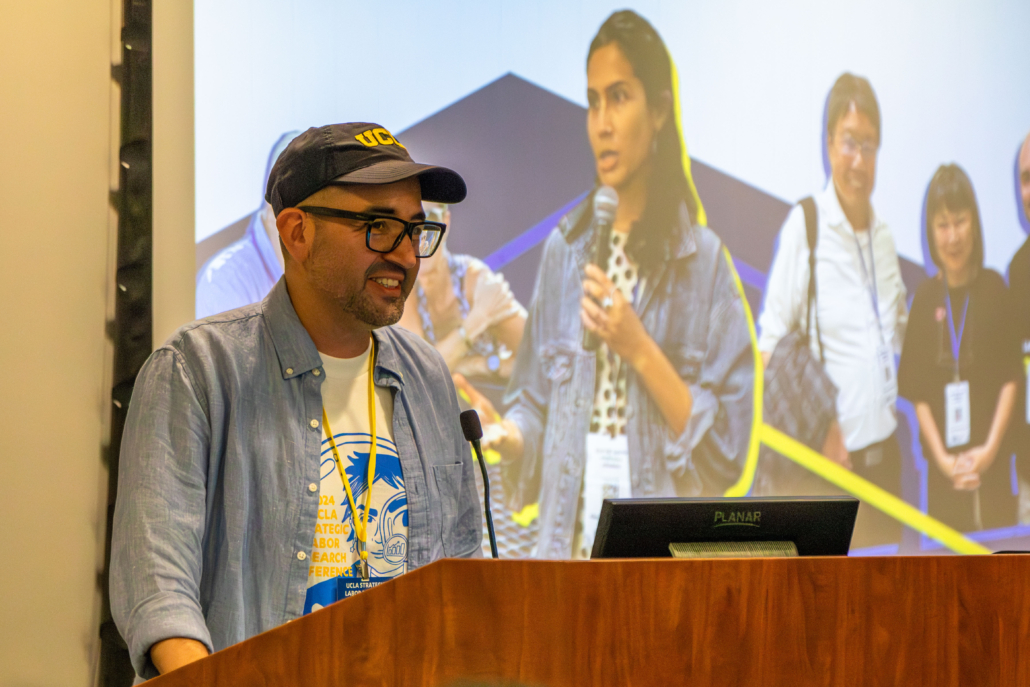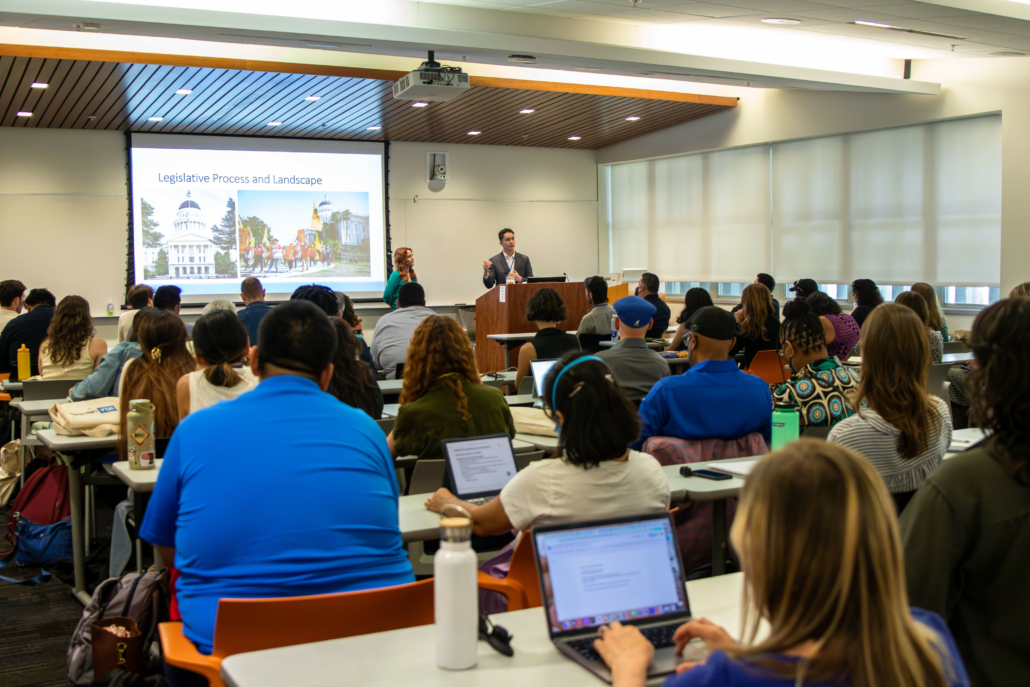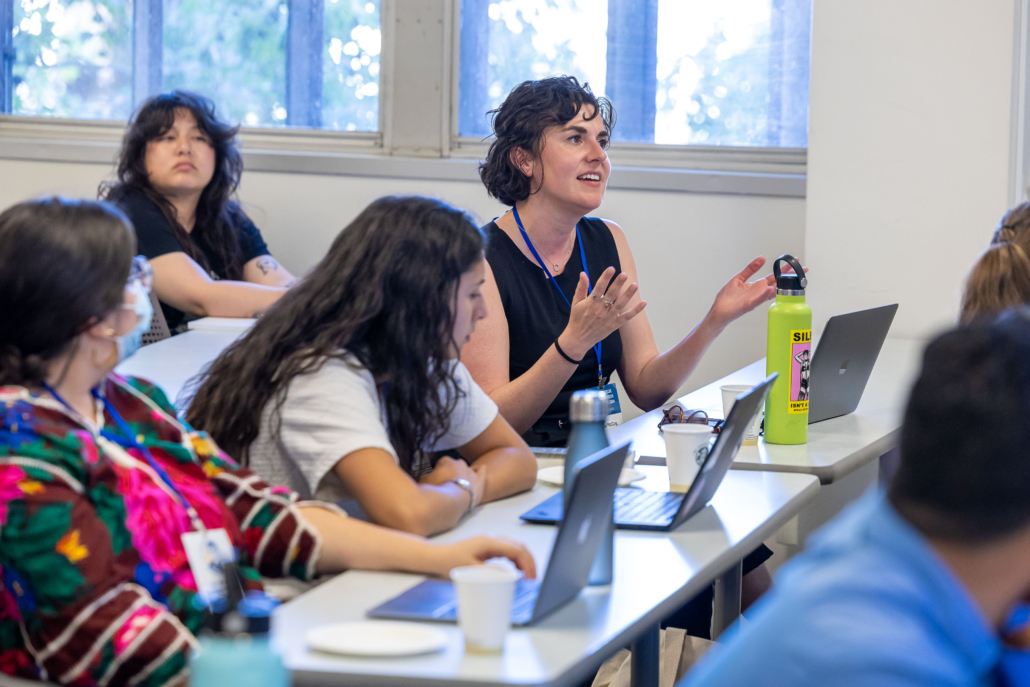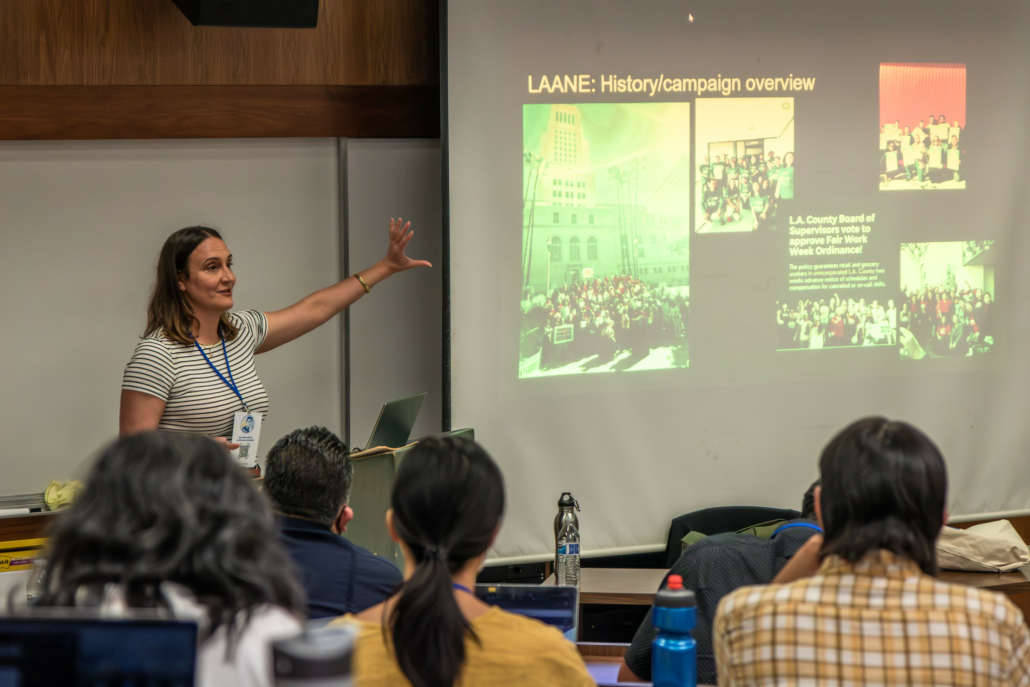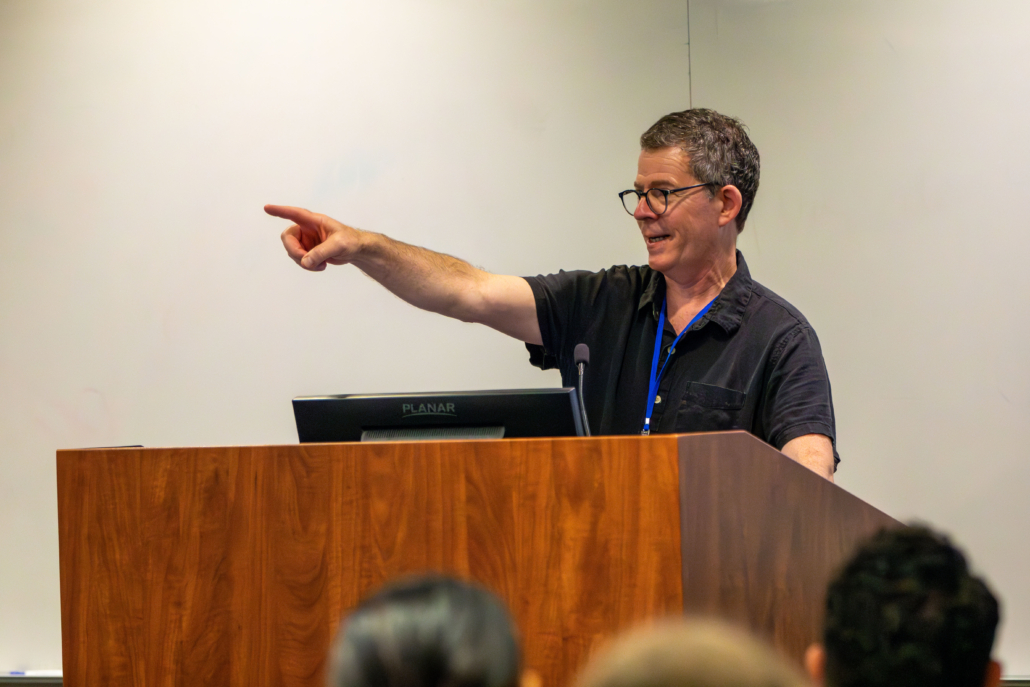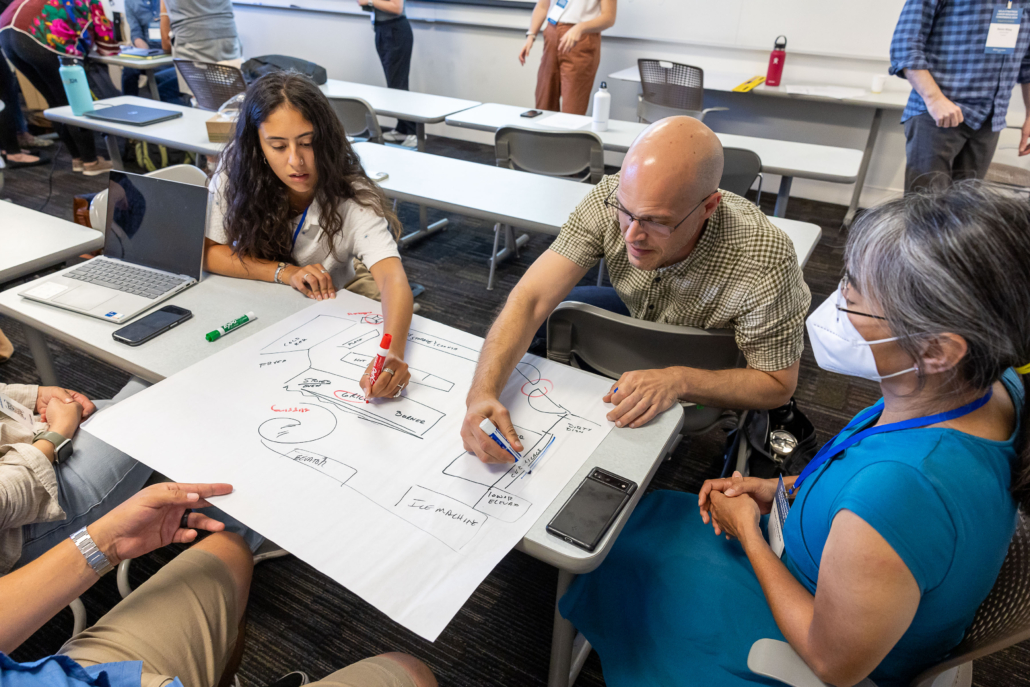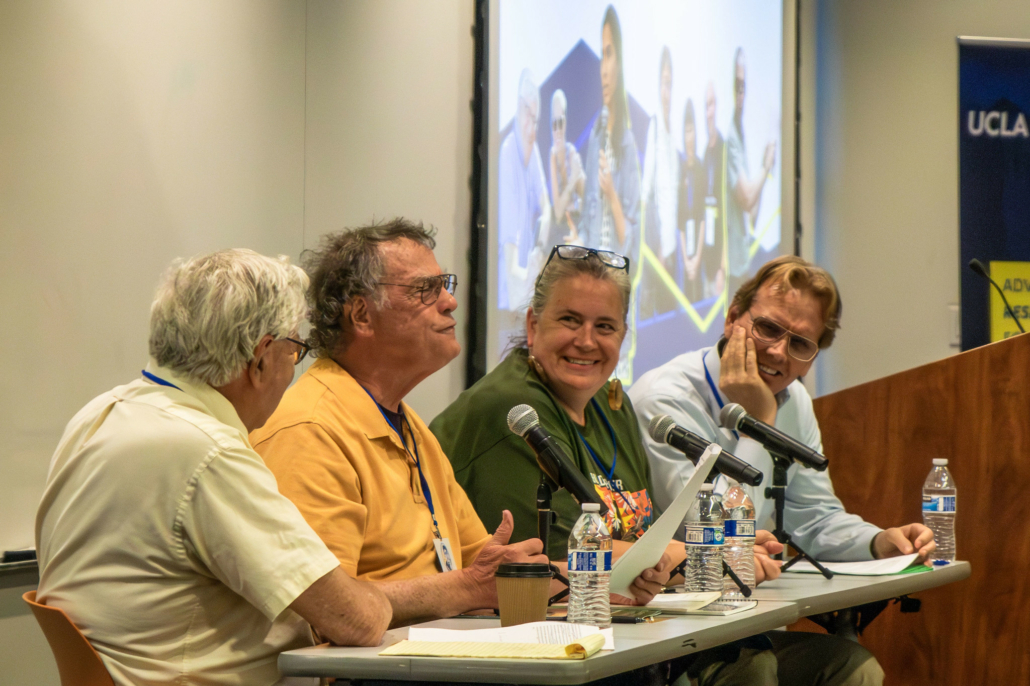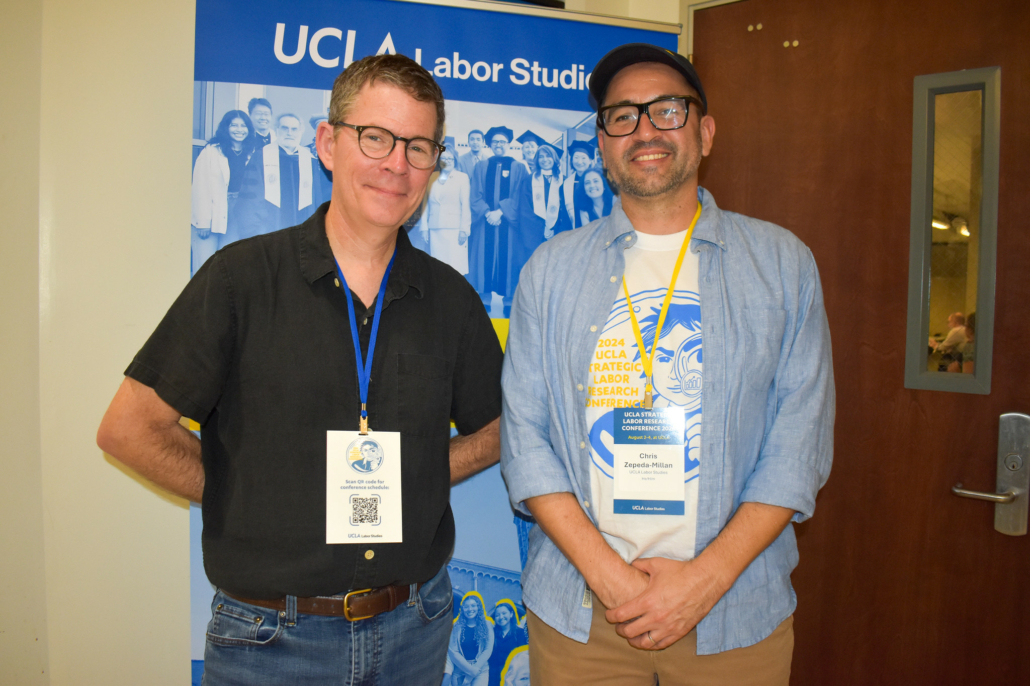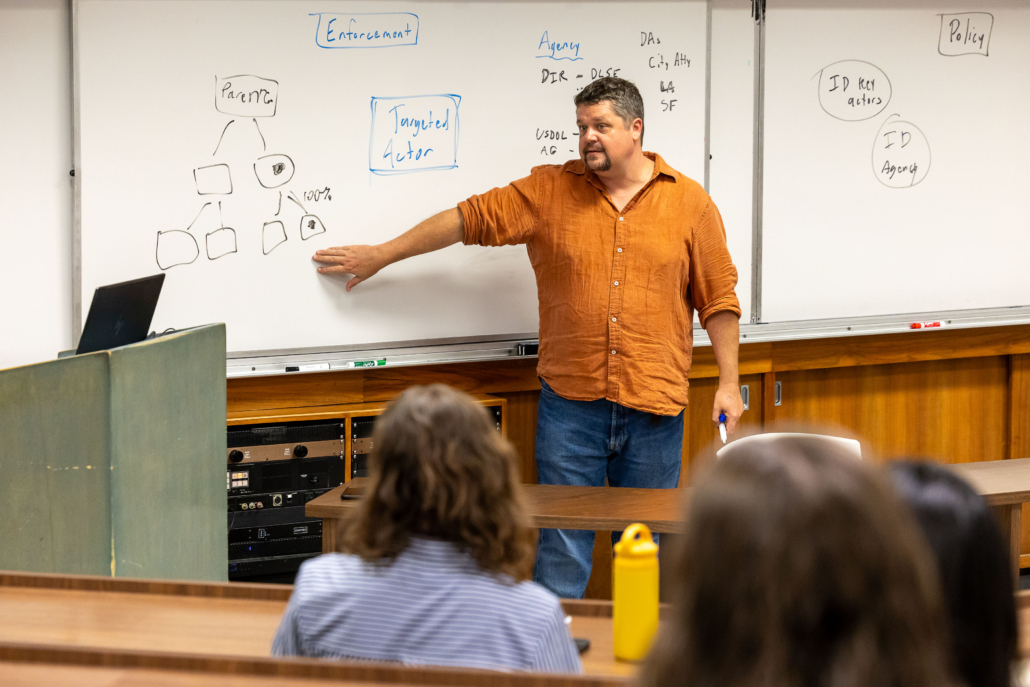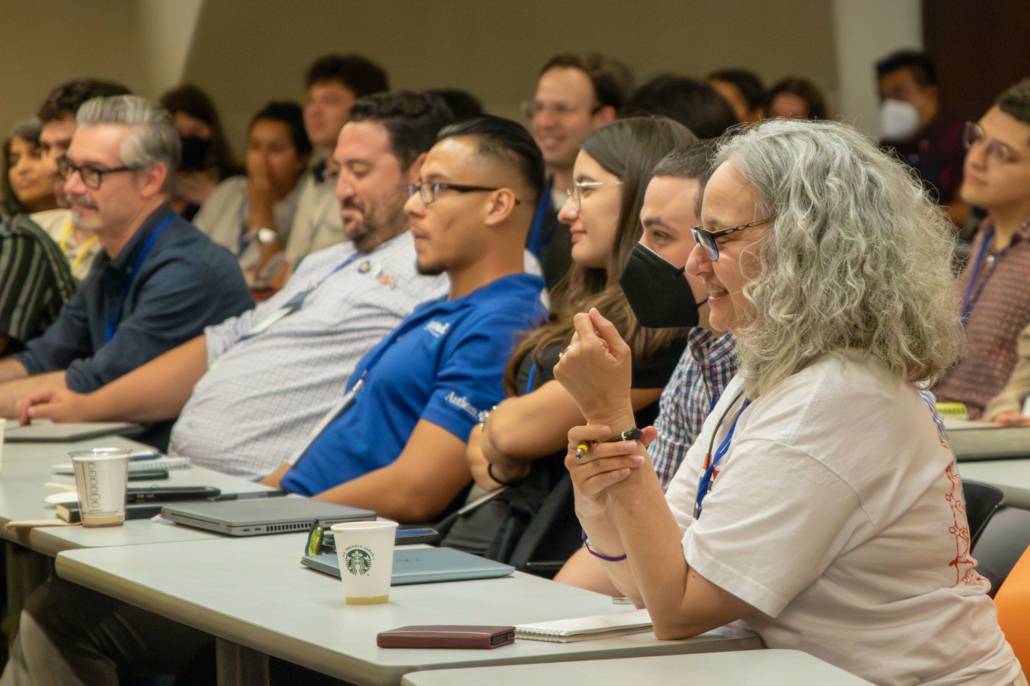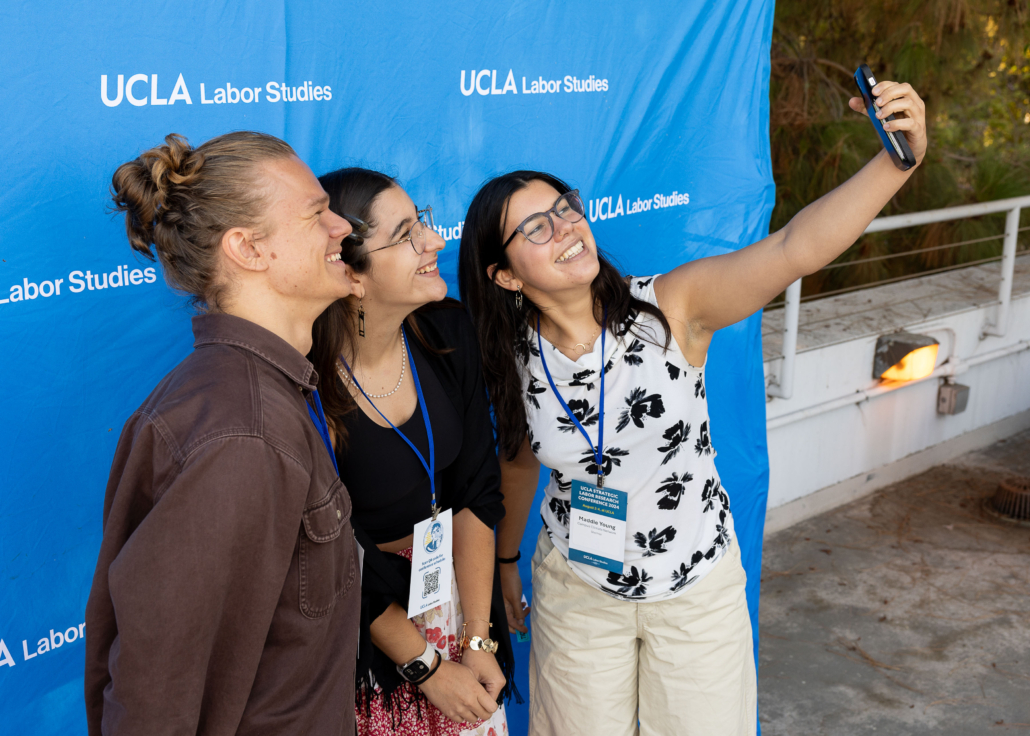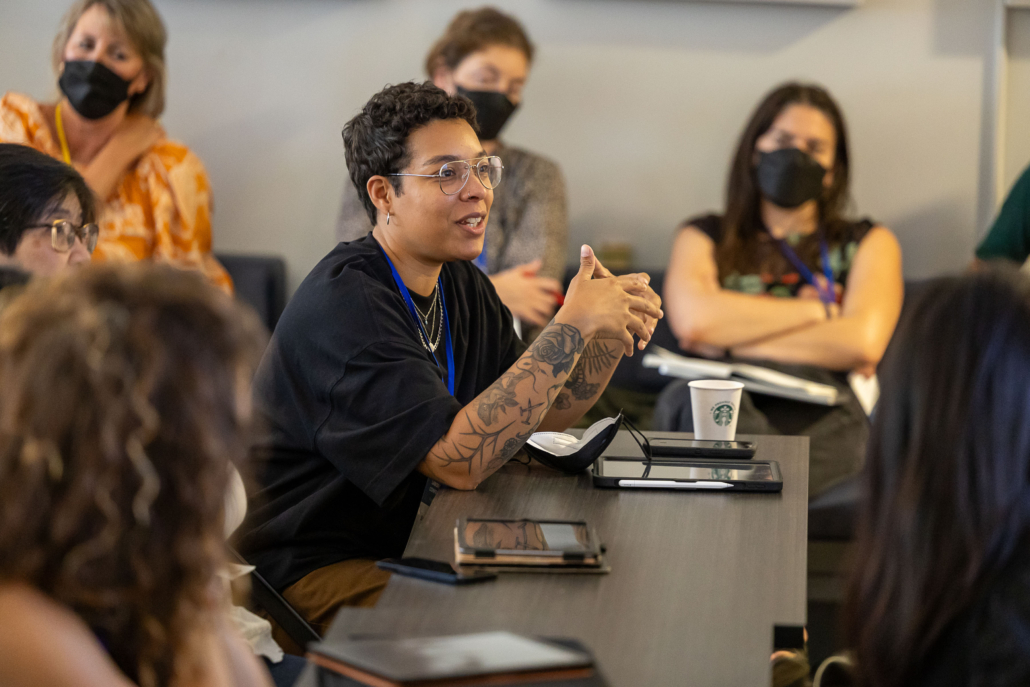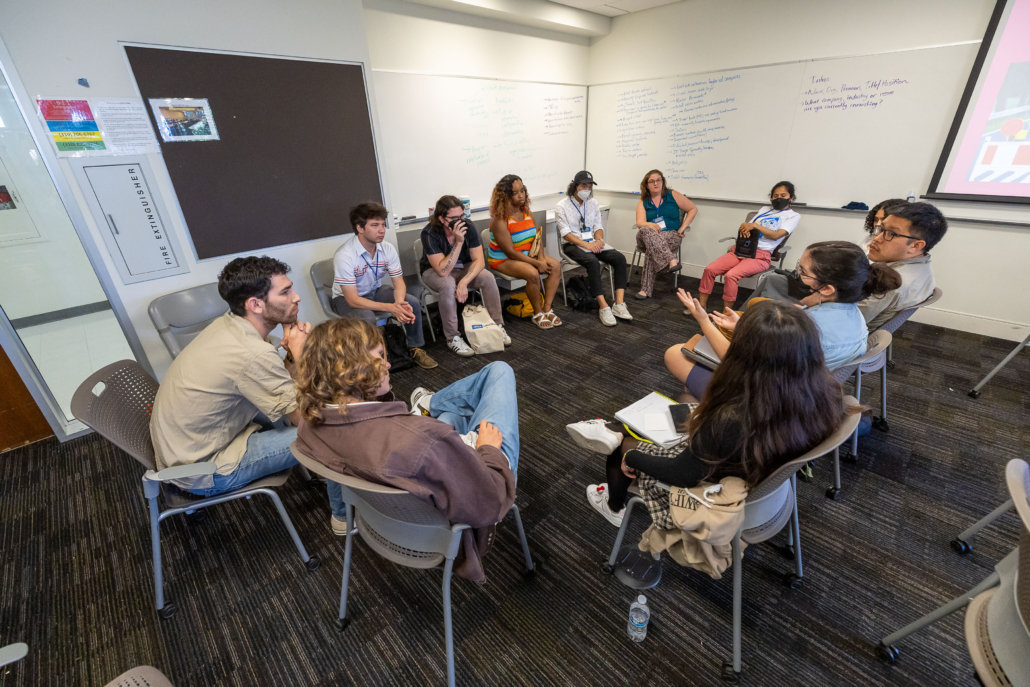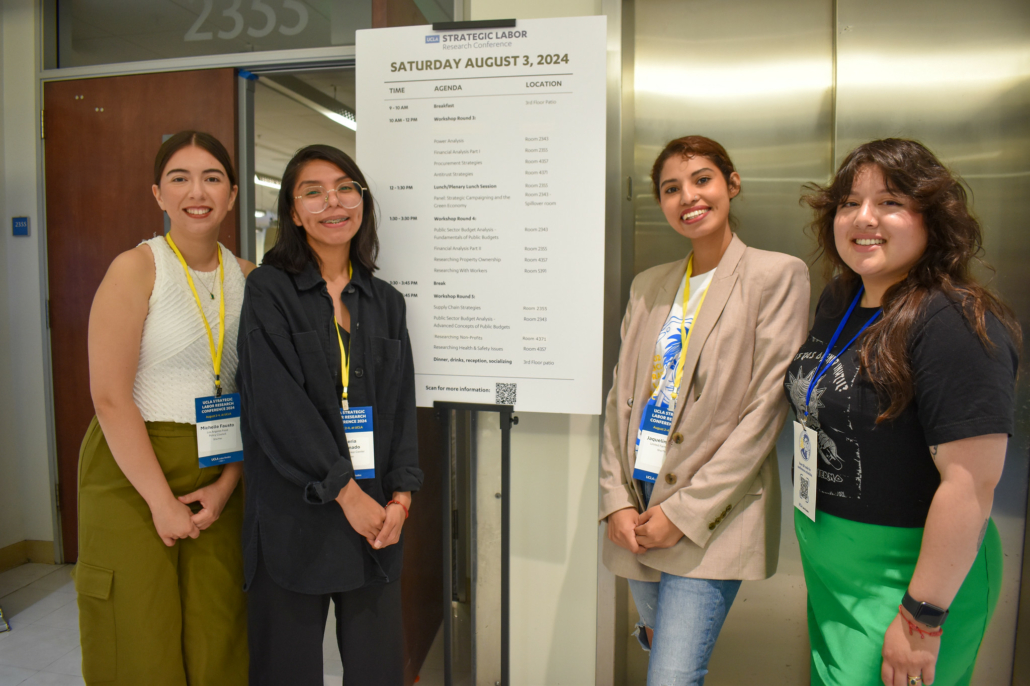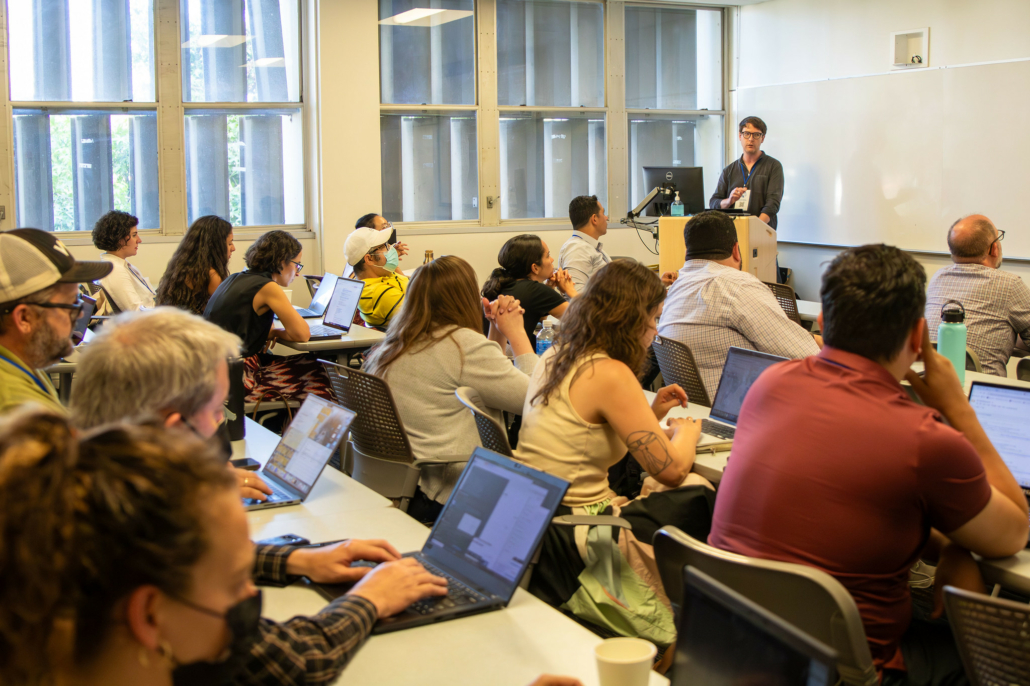UCLA Strategic Labor Research Conference unites a diverse coalition of researchers and activists
Labor, climate change, food justice and housing reform movement researchers convened at the annual event
Willa Needham | August 9, 2024
In a powerful keynote address delivered at the UCLA Strategic Labor Research Conference, Kim Kelly, a prominent journalist, organizer and author of “Fight Like Hell: The Untold History of American Labor,” spoke about the unifying potential of the labor movement in our polarized society.
“Every struggle is connected,” she said. “At every protest you can think of, for every cause or issue you can imagine, almost every person you see there is going to have to clock into work the next day. Labor is one of the few truly universal experiences in our divided society.”
The inclusive and intersectional nature of the labor movement was on full display at the weekend conference held August 2-4, with attendees representing numerous social identities, age groups, geographic origins and professional specialties.
Now in its second year, the conference provides an invaluable educational and networking opportunity for individuals and organizations that leverage research and data to improve work standards and advance social justice.
In workshops, talks and panels facilitated by established and emerging experts, attendees sharpened their knowledge of strategic research, a method that prioritizes gathering targeted information. Participants learned how intricate policy details, geographic data about constituents and detailed corporate earnings reports could be used to maximize the efficacy of labor and economic justice campaigns.
Beyond the classroom, attendees forged new relationships, reconnected with former colleagues and shared insights on the most pertinent challenges facing their work.
“The conference provides an exciting opportunity for cross-fertilization, with researchers realizing that they have a lot in common and are organizing against the same targets. There’s a coalition building that happens, not only within movements but between them as well,” said Chris Zepeda-Millán, UCLA Labor Studies chair and professor of Public Policy and Chicana/o and Central American Studies who initiated the annual conference on campus.
Inspired by Cornell University’s highly popular Strategic Corporate Research Summer School, the UCLA conference set out to design a program that served the vibrant heart of the labor movement on the West Coast.
“Los Angeles has emerged as a focal point of the U.S. labor movement,” said Kent Wong, the project director for labor and community partnerships at the UCLA Labor Center. “There is more organizing, strikes and worker mobilization happening here than anywhere else.”
Building on the success of the inaugural 2023 conference, the 2024 Strategic Labor Research Conference gathered a broader coalition of researchers, attracting 200 attendees, with over 100 applicants waitlisted – underscoring the need for a widely available curriculum.
“Sometimes, we feel like we’re throwing spaghetti at the wall when we’re doing our corporate campaigning,” she said. “But this conference makes it clear that there are ways to research corporations and our targets so that we are really strategic about our campaigning to do it in a way that is actually going to win.”
Although focused on California, the conference welcomed participants from around North America, including delegations of climate finance researchers, union researchers from Mexico and BIPOC researchers from across the U.S. The diverse mix of attendees also included individuals and groups working outside labor in adjacent social movements, like climate change, food justice and housing.
One attendee, Sarah Lasoff, a special projects manager at the environmental justice group Stop the Money Pipeline, shared her reflections on the importance of applying refreshed approaches to research.
“Sometimes, we feel like we’re throwing spaghetti at the wall when we’re doing our corporate campaigning,” she said. “But this conference makes it clear that there are ways to research corporations and our targets so that we are really strategic about our campaigning to do it in a way that is actually going to win.”
Tobias Higbie, labor historian and director of the UCLA Institute for Research on Labor and Employment (IRLE) emphasized how the conference aligns with UCLA’s public mission to facilitate open access and make knowledge accessible to all.
“I think this conference is an outstanding example of what we are meant to be doing as a public research university,” he said. “The skills we learned this weekend are not just something that should stay at UCLA. They should be shared with the community to make our lives better and make our communities better.”

